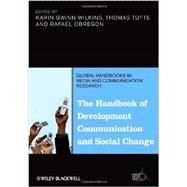This valuable resource offers a wealth of practical and conceptual guidance to all those engaged in struggles for social justice around the world. It explains in accessible language and painstaking detail how to deploy and to understand the tools of media and communication in advancing the goals of social, cultural, and political change.
- A stand-out reference on a vital topic of primary international concern, with a rising profile in communications and media research programs
- Multinational editorial team and global contributors
- Covers the history of the field as well as integrating and reconceptualising its diverse perspectives and approaches
- Provides a fully formed framework of understanding and identifies likely future developments
- Features a wealth of insights into the critical role of digital media in development communication and social change








